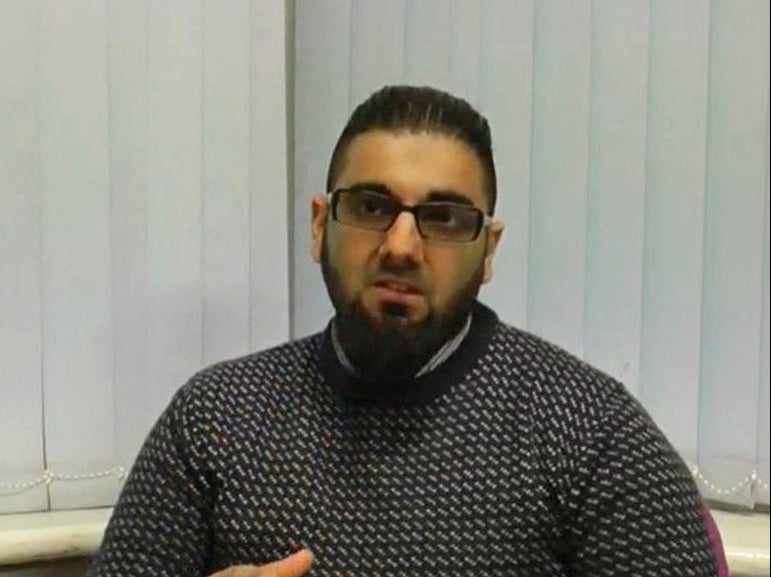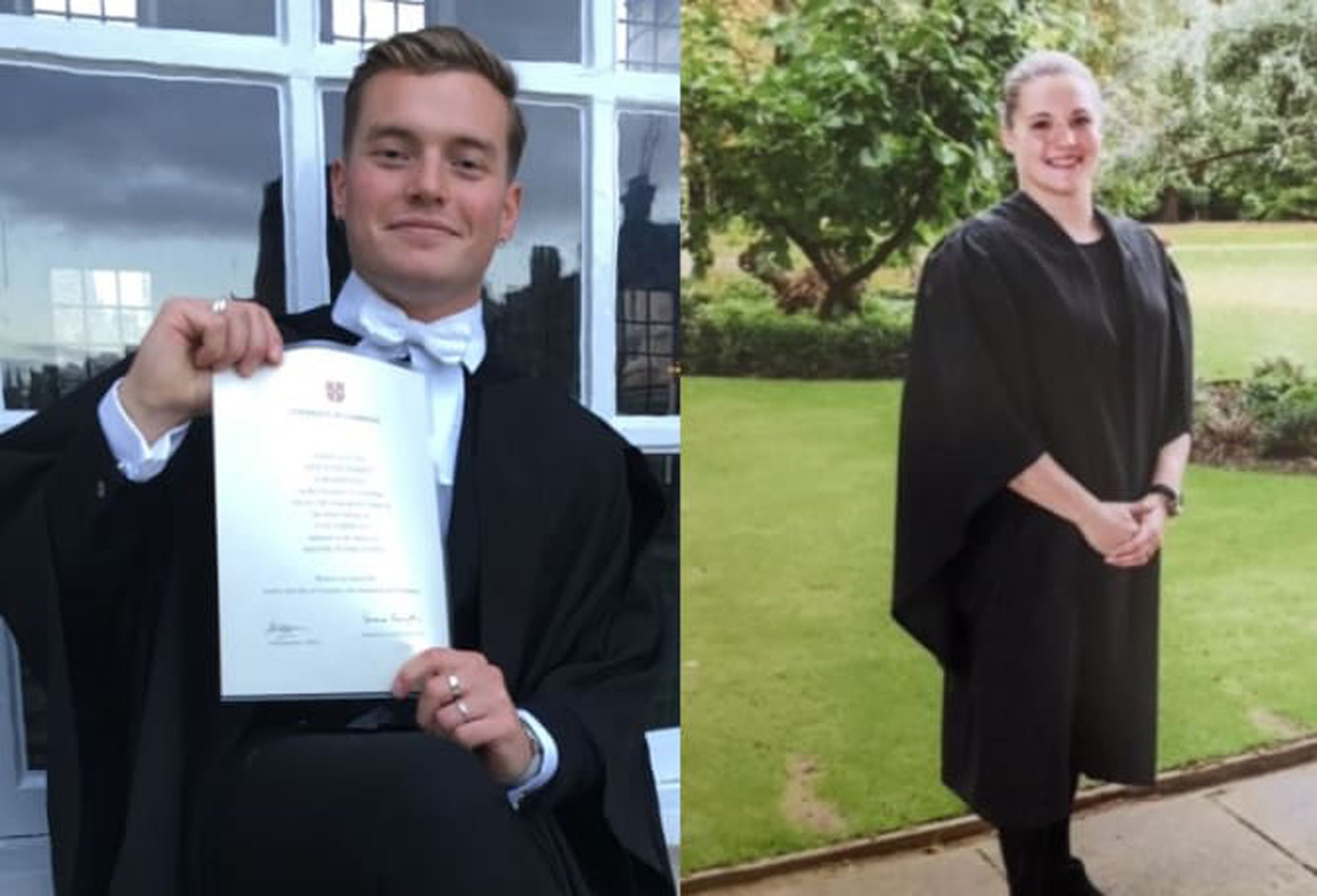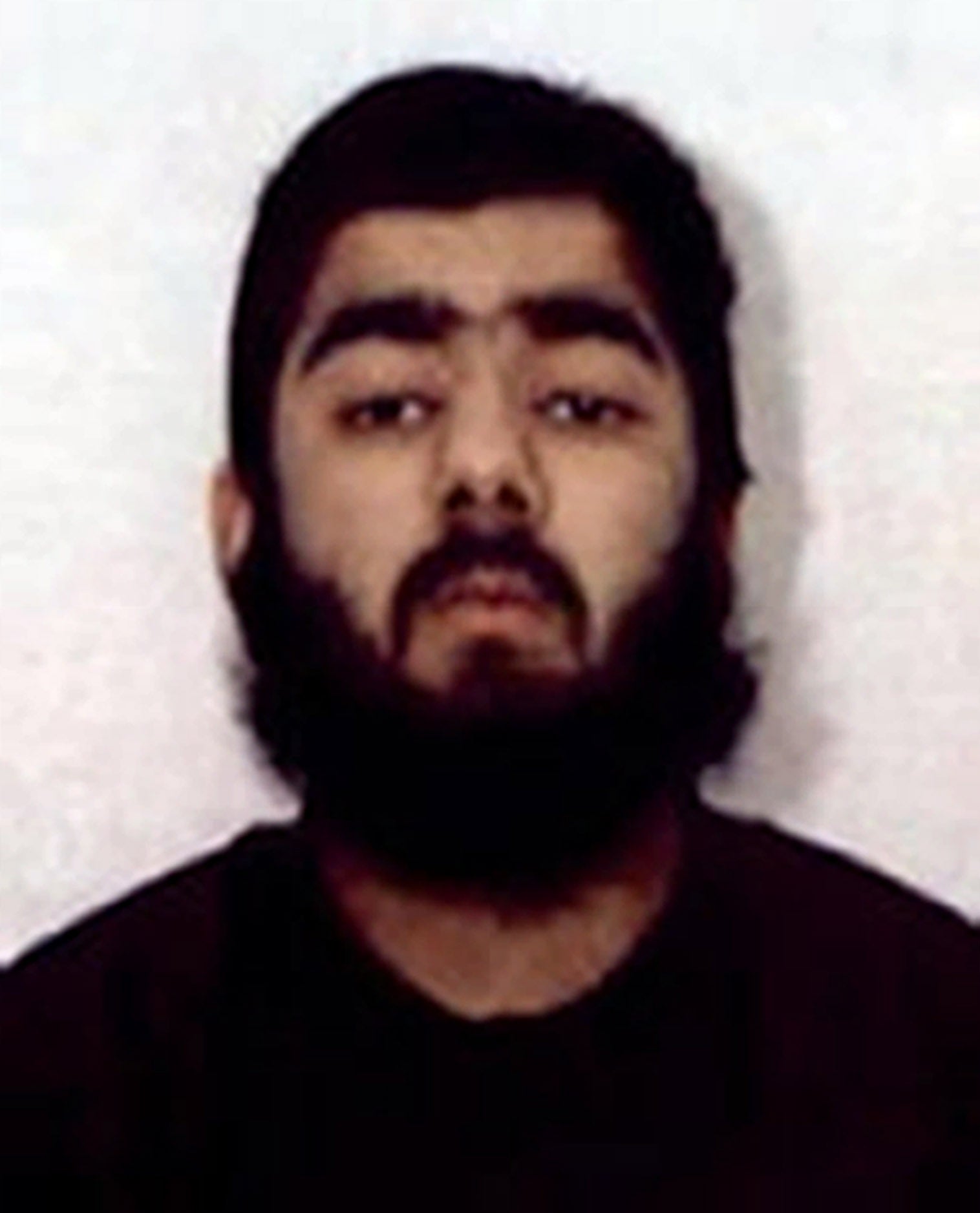Fishmongers’ Hall attacker was ‘influential’ inmate who associated with Lee Rigby’s killer, inquest hears
Discussions held regarding risks of convicted terrorist learning to drive dumper truck – but not about him travelling to London for event, jurors told

Your support helps us to tell the story
From reproductive rights to climate change to Big Tech, The Independent is on the ground when the story is developing. Whether it's investigating the financials of Elon Musk's pro-Trump PAC or producing our latest documentary, 'The A Word', which shines a light on the American women fighting for reproductive rights, we know how important it is to parse out the facts from the messaging.
At such a critical moment in US history, we need reporters on the ground. Your donation allows us to keep sending journalists to speak to both sides of the story.
The Independent is trusted by Americans across the entire political spectrum. And unlike many other quality news outlets, we choose not to lock Americans out of our reporting and analysis with paywalls. We believe quality journalism should be available to everyone, paid for by those who can afford it.
Your support makes all the difference.The Fishmongers' Hall attacker was an “influential” inmate who associated with Lee Rigby’s killer before his release, an inquest has heard.
Convicted terrorist Usman Khan, 28, spent eight years in prison, where he was involved in a string of violent incidents and “extremist bullying”, the inquest jury at London's Guildhall was told.
Eleven months after his release, Khan killed Cambridge graduates Jack Merritt, 25, and Saskia Jones, 23, at a Learning Together prisoners' educational event at Fishmongers' Hall in London.
Beforehand, there had been discussion about the risks of Khan learning to drive a dumper truck, but not of him travelling to London to attend the event, jurors heard.
On Tuesday, senior investigating officer Detective Chief Inspector Dan Brown gave evidence about Khan's life and long history of extremism in and out of prison.
Born in Stoke-on-Trent to parents who had come to the UK from Pakistan, he was described by a former teacher as having a "chip on his shoulder" and "teenage swagger".
At the age of 13, Khan was excluded from school after assaulting another pupil and exchanging racial slurs, for which he was given a youth reprimand, the court heard.
The court heard Khan was attracted to extreme Islam in his teens and took an interest in prominent figures Anwar Al-Awlaki and Anjem Choudary, the leader of terrorist organisation al-Muhajiroun (ALM).
In 2008, he preached in Stoke on behalf of ALM and police raided the address where he was living, jurors heard.
Afterwards, Khan said he was born and bred in Stoke, and insisted: "I ain't no terrorist."
But within years, Khan was one of nine men from London, Stoke and Cardiff to be convicted of terrorism offences.
In December 2010, Khan discussed with another male how to construct a pipe bomb from a recipe in the al Qaida magazine Inspire, jurors heard.
Khan pleaded guilty to engaging in conduct in preparation of terrorist acts and was in custody until the end of 2018.
In a basis of plea, Khan admitted plotting to set up a terrorist training camp in Pakistan which might send fighters back to the UK.
In February 2012, Khan was handed an indeterminate sentence which was varied upon appeal to an extended sentence.

It meant Khan had to serve eight years in custody but no longer needed the approval of the Parole Board before his release, the court heard.
Jurors were told Khan became a senior figure among extremists in prison and was categorised as "high risk".
He was involved with violent incidents and radicalisation of fellow inmates during his time at seven prisons across England.
In January 2011, Khan suggested he had access to a weapon and would "do someone in the eye or neck" and wanted to die and go to paradise, jurors heard.
In March 2011, Khan and others were involved in an attack on another prisoner to shouts of "Allahu Akbar", Mr Brown said.
The same year, Khan shouted during the two-minute silence for Armistice Day.
In June 2012, Khan recited a poem which included the line "cut off the kuffar's head", the court heard.
In May 2013, a stockpile of chemicals was found in Khan's cell which would not have been capable of making an IED but was still "very concerning", Mr Brown said.
In November of that year, a Church of England chaplain was caught up in an assault by Khan on another prisoner.
The same day, a razor blade was found in his cell, the court heard.
In 2017, while at HMP Whitemoor, Khan remained a high risk, Mr Brown said.

While his behaviour was noted as "acceptable" with "no recent adjudications", evidence suggested he continued to harbour extremist attitudes and deliberately "told lies or ticked boxes to achieve progression".
In March 2017, Khan talked about his Muslim faith with Michael Adebowale, who beheaded Fusilier Rigby, jurors heard.
By June of that year, Khan was regarded as an "influential" terrorist prisoner involved in "extremist bullying", Mr Brown said.
In October 2018, intelligence on Khan suggested he would "return to his old ways".
Meanwhile, he was said to have engaged "positively" with Learning Together, jurors heard.
Following his release from prison on licence, Khan's progress was discussed in a series of Multi-Agency Public Protection Arrangements (Mappa) meetings.
Jurors heard that the idea of Khan learning to drive a dumper truck to help his employment chances was "deemed not appropriate" due to the risk it presented.
However, when the subject of him attending a Learning Together event in London came up, there was no discussion of the risk that could pose, the court heard.
At a final Mappa meeting on 14 November 2019, Khan's probation officer noted he was "always cheerful in his presentation" and there was no concern for his mental health.
The arrangements for Khan to travel to London on 29 November and be met at Euston station were mentioned, jurors were told.
Jonathan Hough QC, counsel for the coroner, said consideration of the trip referred to "logistics rather than risks".
Mr Brown replied: "It looks like it's decided already, yes."
The inquest into the deaths of Ms Jones and Mr Merritt continues.
Additional reporting by PA




Join our commenting forum
Join thought-provoking conversations, follow other Independent readers and see their replies
Comments